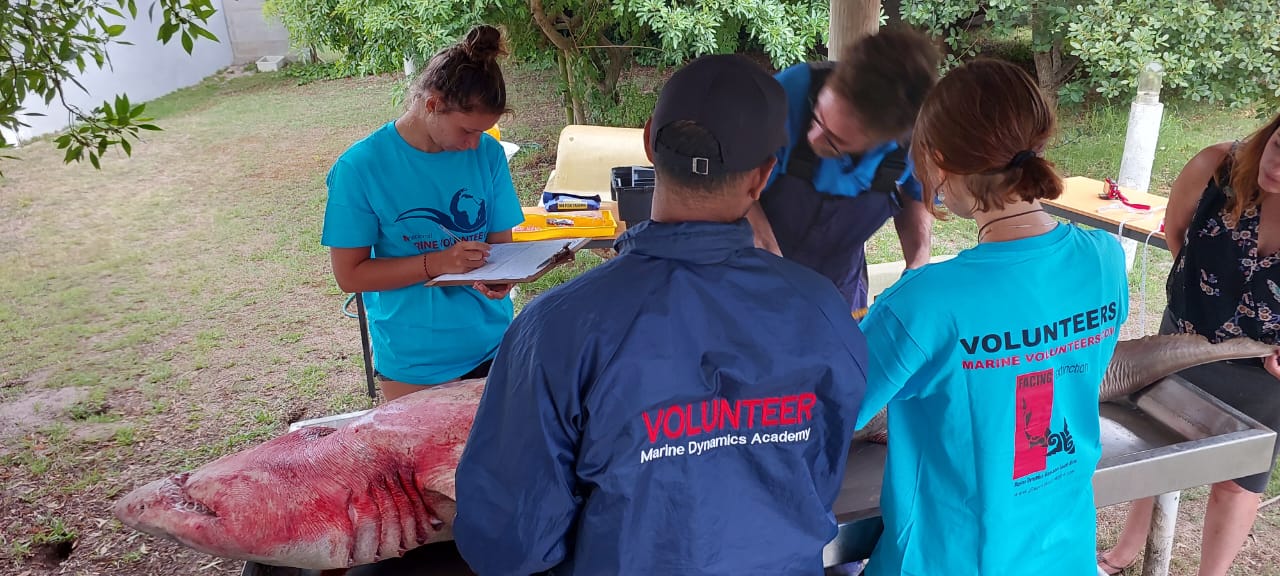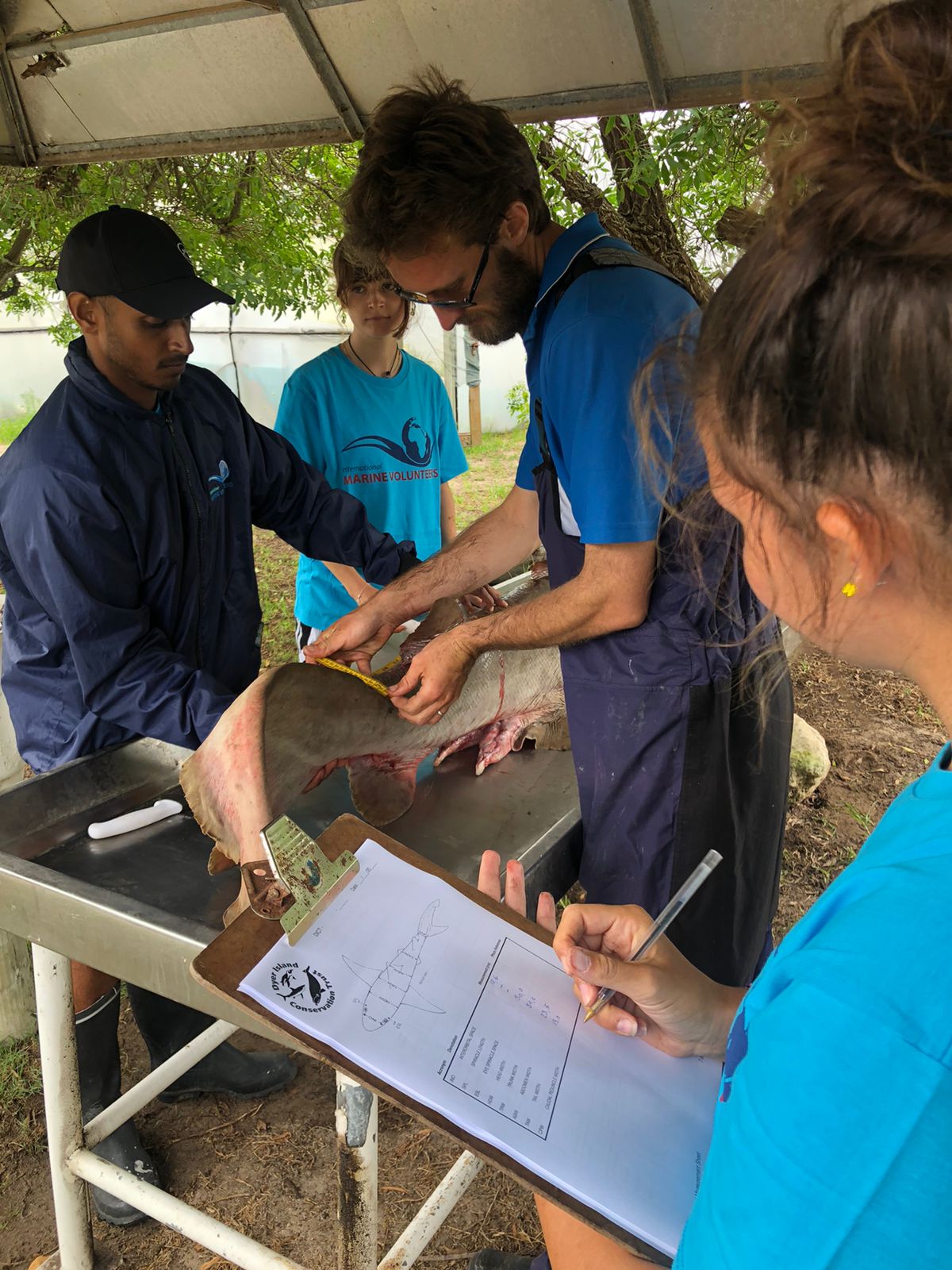Earlier this week, the Dyer Island Conservation Trust (DICT) responded to a report of a Ragged-tooth shark stranding in Franskraal at a well-known fishing hotspot. The shark was recovered by the team and transported to the DICT lodge.
With the assistance of volunteers from the Marine Dynamics Academy, a necropsy was performed on the animal the following morning to determine the cause of death. The animal was a sexually mature male and almost 2.5 meters long. While it was found in an area frequently visited by fishermen, especially during the summer holidays, the animal surprisingly showed no signs of hook damage. An examination inside the mouth and the stomach also revealed no signs of hook damage.

Marine Dynamics Academy interns and volunteers assisting with the necropsy.
While the animal showed no signs of physical damage, the liver of the animal was an unusual grey colour, which is usually a nice pinkish colour, suggesting the animal might have been quite sick.
Ragged-tooth sharks (Carcharias taurus) can be found worldwide in temperate and subtropical waters. As a result, it is one of the few shark species known by different names elsewhere: the Grey nurse shark in Australia or the Sandtiger shark in North America. Around the world, the shark is threatened by artisanal, recreational, and industrial fisheries; the International Union for Conservation of Nature has classified the species as Critically Endangered. Because the species prefers inshore waters, it is also threatened by habitat loss and degradation, pollution, and climate change.

Marine Dynamics Academy Intern and Volunteers assist with Ragged-tooth shark necropsy.

